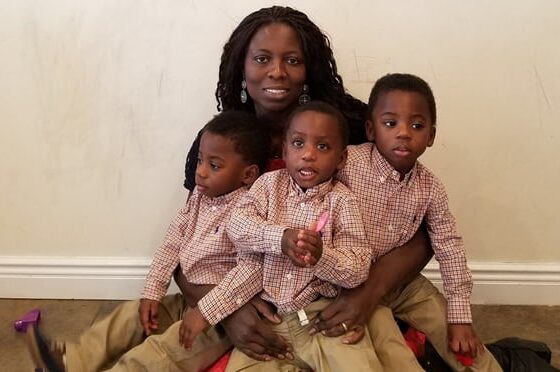As the Health Care Reform Act is implemented over the next two years there will continue to be disputes between Insurers and providers regarding payment. Providers often take large discounts to be in network in return for a greater volume of patients through networks with insurers. It’s a price for volume trade-off familiar to those who are economics minded. There are often problems in the interpretation and execution of agreements and the associated health care billing practices. Sometimes this results in balance bills being sent to consumers. This article profiles a dispute in New Jersey. Be prepared for other similar disputes across the country.
Meadowlands Hospital bills disputed by patients, Aetna
By LINDY WASHBURN -The Record, Wednesday, August 15, 2012
Meadowlands Hospital Medical Center has billed hundreds of patients in the last few weeks for care they thought was covered by their Aetna insurance policies. The bills — some for thousands of dollars — demand payment within five days.
Aetna’s advice to the recipients: Don’t pay.
Aetna customers who receive bills from Meadowlands Hospital Medical Center are urged to contact the Department of Banking and Insurance at 800-446-7467, or file a complaint online at state.nj.us/dobi/consumer.htm
The dispute shines a light on the complicated terrain that underlies relationships between hospitals and insurers. When new owners bought the Secaucus medical center in December 2010, the state required that the for-profit company make “a reasonable attempt to continue the current commercial insurance contracts” for at least a year.
As a result, Aetna says, its contract with the hospital was in force in 2011 — when the bills were incurred — and so the hospital must accept the lower rate it had negotiated as payment in full.
The hospital, however, has told patients they must pay the difference between that contract rate and its regular, higher charges. The letters to those patients state clearly, “You remain obligated to pay all outstanding invoices.” They ask for payment by credit card, certified check or money order.
Meadowlands President Lynn McVey declined through a spokesman to address the contract question.
“Regrettably,” she said in a prepared statement, “a national health insurer is withholding some payments for its plan members who have previously utilized our services. Until this matter is clarified and resolved through negotiations, our reluctant recourse is to follow standard procedure … and seek payment from individuals who were previously treated by [the hospital] and still have an outstanding balance.”
Eileen O’Donnell of North Arlington was told she owed $4,745 for an emergency-room visit in May 2011 to treat a foot injury. That was more than 20 times Aetna’s member rate of $204. Her total responsibility, according to Aetna’s explanation of benefits, was $68.40.
And Kaarin Varon of East Rutherford received a demand from Meadowlands for $13,004 for the care of her son, who was hospitalized with pneumonia last year. Aetna already had paid $1,596 as its contracted rate for his stay.
“I have to admit, I was not sure how a contract dispute had me involved in all this,” said Varon. “But the [Meadowlands billing] representative basically told me it was now my responsibility.”
The state Department of Banking and Insurance is working with the health department to resolve the issue, according to Marshall McKnight, an insurance department spokesman. “Our goal is to protect consumers as much as possible through this process,” he said. Patients who receive the bills are urged to contact the department, he said.
The dispute comes at a time when questions are being raised about finances at the hospital. An independent draft audit for 2011 showed a 10 percent profit margin — four times the state average. A year after MHA LLC, a private investment group, bought Meadowlands in December 2010, the new owners had reversed the $10.4 million operating loss reported for 2010 and posted a $9 million profit, according to the draft submitted to the state.
The dispute also highlights the vast difference between a hospital’s customary charges and the rates negotiated with insurance companies for hospital care. The negotiated rates are often a fraction — 5 percent or 10 percent — of those customary charges.
Some hospitals opt to stay out of insurance contracts as a strategy to increase revenues.
Under New Jersey law, if insured patients are seen or admitted through a hospital emergency room, their insurer is obliged to pay for their care, even if it does not have a contract with the hospital and therefore must pay a higher price.
The patient’s responsibility, however, is limited to the amount he would have paid at an in-network provider.
State Sen. Joseph Vitale, the Middlesex Democrat who is chairman of the Senate Health Committee, said that Meadowlands would be ignoring laws that protect patients if it asked for additional payment on settled claims. “The law protects the patient” from being billed for charges beyond the contracted rate, he said. “That’s between the hospital and Aetna — and not the patient.”
Aetna says patients “should not pay any portion of the bill beyond their copayment,” said Susan Millerick, a spokeswoman. “Under the terms of an agreement we believe exists between Aetna and Meadowlands, our members are not responsible for any costs beyond the copayment under their plan, and we have already processed and paid the claims.”
Aetna contends that its contract continued until January of this year, when Aetna terminated it, Millerick said.
Neither Aetna nor Meadowlands would say how many people have received the letters demanding payment. It’s not known how many patients may have sent payments in response to the letters.
Vitale, who has previously criticized the hospital’s new ownership, said the attempt to collect from Aetna patients was further evidence that Meadowlands “is trying to suck as much money out of consumers and insurance carriers as possible.”
“Think of the people who don’t understand what the rules are in this state,” and paid these latest bills, he said. “They’re being taken advantage of. They’ll never get their money back.”


